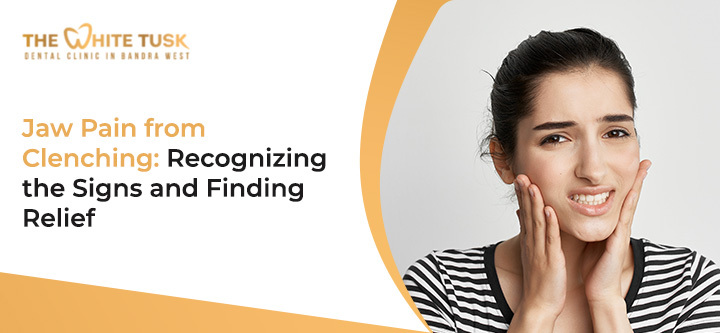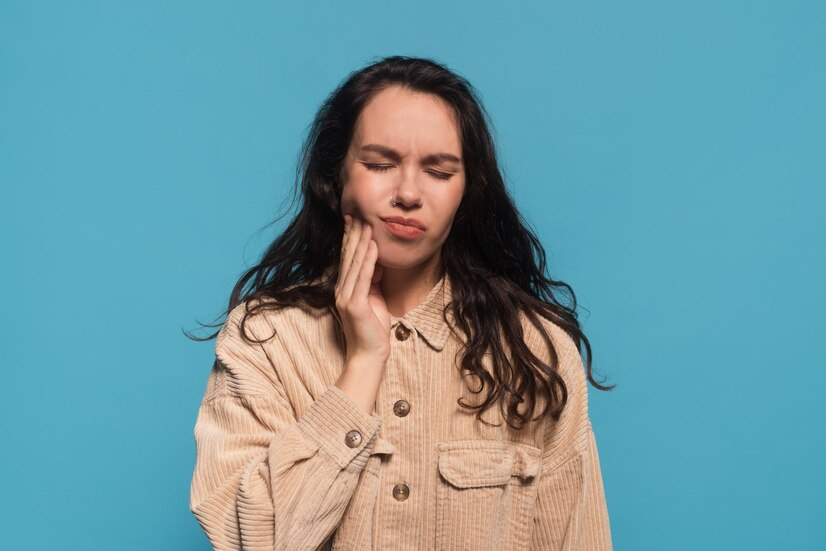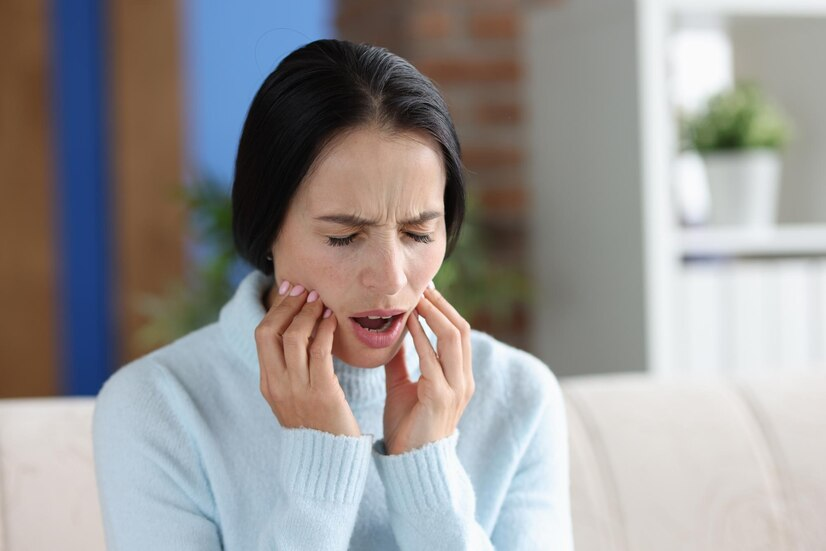
Jaw Pain from Clenching: Recognizing the Signs and Finding Relief
Jaw pain is a common complaint that can stem from various causes, including dental issues, arthritis, and stress. One of the most common reasons for jaw pain is clenching, a habit that many people may not even realise they have. Clenching your jaw, especially during periods of high stress, can lead to a host of uncomfortable symptoms. In this blog, we will explore the signs of jaw pain from clenching, understand the underlying causes, and discuss effective strategies for finding relief.
Understanding Jaw Clenching

Jaw clenching, also known as bruxism, is the involuntary grinding, clenching, or tightening of the jaw. People who clench their jaw often do so in response to stress, anxiety, or anger. However, some individuals may clench their jaw due to an improper bite, missing teeth, or other dental issues. Jaw clenching can be a silent habit, often going unnoticed by the individual until symptoms such as jaw pain, headaches, or worn teeth become apparent. The force exerted during clenching can be significant, especially during sleep, leading to potential damage to dental structures and the surrounding tissues.
Types of Jaw Clenching
Jaw clenching, or bruxism, can be categorised into two main types based on when it occurs:
Awake Bruxism:
- This type of bruxism happens during the day while the individual is awake.
- It is often associated with stress, anxiety, or concentrating on tasks.
- People may clench their jaw without realising it, especially during periods of high tension or when deeply focused.
- Awake bruxism can be more easily controlled once the person becomes aware of the habit.
Sleep Bruxism:
- Sleep bruxism occurs during sleep and is more challenging to control because it happens unconsciously.
- It can be more damaging to the teeth and jaw due to the increased force used during sleep.
- Sleep bruxism may be related to sleep disorders, such as sleep apnea, or it can be a side effect of certain medications.
- It can also be associated with an abnormal bite or misaligned jaw, which can cause discomfort that leads to clenching during sleep.
Both types of bruxism can lead to similar symptoms and complications, such as tooth wear, jaw pain, and headaches. The treatment and management strategies for bruxism often depend on the type and severity of the condition, as well as the underlying causes.
Signs of Jaw Pain from Clenching
The signs of jaw pain from clenching can be subtle at first but may become more pronounced over time. Common symptoms include:
- Jaw Pain and Discomfort: Persistent pain or soreness in the jaw area, particularly upon waking or after periods of high stress.
- Headaches: Tension headaches that radiate from the temples or the back of the head are often caused by strain on the jaw muscles.
- Earaches: Referred pain that makes it seem like an ear infection or other ear-related issue.
- Teeth Sensitivity: Increased sensitivity to hot or cold foods and drinks, which can be a sign of worn enamel.
- Worn Teeth: Noticeable flattening or chipping of the teeth, indicating long-term clenching or grinding.
- Locking Jaw: Difficulty in opening or closing the jaw, which can be a symptom of temporomandibular joint disorder (TMJ).
Causes of Jaw Clenching

The exact cause of jaw clenching can vary from person to person. However, several factors are commonly associated with this habit:
- Stress and Anxiety: Emotional stress is a leading cause of jaw clenching. Anxiety can also lead to increased muscle tension, including in the jaw.
- Personality Traits: Some personality types, such as highly competitive or aggressive, may be more prone to clenching.
- Lifestyle Factors: Caffeine, alcohol, and tobacco can all contribute to jaw clenching.
- Sleep Disorders: Sleep apnea and other sleep disorders can cause individuals to clench their jaw during sleep.
- Medical Conditions: Certain medical conditions, including Parkinson’s and Huntington’s disease, can cause jaw clenching.
Finding Relief from Jaw Pain
If you suspect that you are experiencing jaw pain from clenching, there are several steps you can take to find relief:
- Stress Management: Learning stress management techniques such as meditation, deep breathing exercises, or yoga can help reduce the urge to clench.
- Relaxation Techniques: Regularly practising relaxation techniques, such as gentle jaw stretches and massages, can help relieve muscle tension.
- Avoid Triggers: Identify and avoid triggers that lead to clenching, such as stressful situations or stimulants like caffeine.
- Mouthguards: Wearing a mouthguard, especially at night, can protect your teeth from the damage caused by clenching and grinding.
- Dental Corrections: If an improper bite or missing teeth are contributing to your clenching, dental corrections may be necessary.
- Medication: In some cases, your doctor may prescribe muscle relaxants or other drugs to help manage jaw pain and clenching.
- Physical Therapy: A physical therapist can teach you exercises to strengthen the jaw muscles and improve flexibility.
- Counselling: For those whose clenching is related to emotional stress or anxiety, counselling can be beneficial.
When to See a Professional

If your jaw pain persists or is accompanied by other symptoms, such as difficulty chewing, speaking, or opening your mouth, it’s important to seek professional help. A dentist or oral surgeon can diagnose the cause of your jaw pain and recommend appropriate treatment. In some cases, you may also need to consult with a physician or a psychologist, especially if stress or anxiety is a contributing factor.
Conclusion
Jaw pain from clenching can significantly impact your quality of life, leading to discomfort, headaches, and dental issues. Recognizing the signs early and understanding the causes can help you take proactive steps towards finding relief. By implementing stress management techniques, practising relaxation, and seeking professional help when necessary, you can alleviate jaw pain and prevent long-term damage. Remember, your jaw deserves care and attention, so don’t hesitate to reach out for help if you’re struggling with the effects of clenching.
